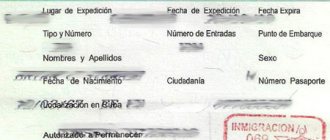Economic situation in the country
Singapore is a highly developed post-industrial country with a per capita GDP of $85,000 per year. Today it is one of the largest financial centers and transport hubs in Asia.
Despite the fact that Singapore is inferior to Tokyo and Hong Kong in terms of trading volume on the stock exchange, thanks to more liberal financial legislation, this country has become a regional leader in the number of IT companies registered in it.
The inflation rate in the country does not exceed 0.6%, annual GDP growth is at 3.5%.
Among the countries of Southeast Asia, tiny Singapore has long been considered the most developed state. And not only in terms of income, but also in many other indicators:
- almost total absence of corruption,
- infrastructure level,
- stable economy.
Accordingly, working in Singapore can be a very profitable option for employing foreign specialists, including from Russia and the CIS.
Volunteer programs in Singapore
The Republic of Singapore is a city-state with a fairly high standard of living, which leaves its mark on the opportunities for volunteers in this country. There are no poor areas and large numbers of homeless people, with whom foreign volunteers often have to work in third world countries or in the United States.
Volunteer opportunities in Singapore are most often childcare or housekeeping jobs. The list of available offers can be regularly checked on the website: helpx.net.
Au Pair is an international volunteer movement that helps find caregivers and teachers for children among foreigners. You can post your resume on the website: greataupair.com. Moreover, this is not only the work of caring for children, but also the responsibilities of caring for pets, a tutor, and a personal assistant.
In-demand professions in Singapore
Citizens who are planning to look for any low-skilled jobs in Singapore will be disappointed. Similar vacancies are successfully filled by neighbors from the Philippines, Indonesia and Malaysia.
The Singapore government is interested in attracting experienced specialists in the following profiles:
- IT masters;
- programmers;
- medical workers: doctors and nurses;
- web developers and website designers;
- engineers;
- teachers;
- office managers;
- establishment managers;
- auto mechanics;
- biochemists;
- service sector: waiters, customer service managers;
- dishwashers, cleaners, laborers (the lowest paid professions).
Local employers offer salaries of S$500–24,000. 1 SGD is approximately equal to 40-50 rubles.
Important! To get a good salary, you need to choose highly qualified vacancies.
How much can you earn in Singapore?
Salaries in Singapore are high by world standards. Local companies are willing to pay their employees between S$500 and S$24,000. The highest paid vacancies are doctors and leading managers. Their monthly income reaches $24,000.
Middle managers, IT specialists, economists, and engineers earn on average about 8,000 national dollars. The income of secretaries, underwriters and technicians is about $4,000. Service industry professionals can expect to earn up to $2,000. Unqualified specialists are paid up to $1,000.
Pros of working in Singapore:
- High level of security;
- Possibility of beach holiday;
- High level of income;
- Excellent working conditions;
- Development prospects for investors and private entrepreneurs;
- Language of communication is English.
Disadvantages of working in Singapore:
- The working week is 47 hours, which is longer than in Russia;
- Features of local laws, which will be quite difficult to get used to. In Singapore, chewing gum is prohibited, as is drinking any beverages on the subway. These are things that are common for Russians and are strictly prohibited there;
- The need to undergo a full medical examination to obtain a visa and enter into an employment contract. It is important that you have no infectious diseases and no mental disorders. This is done if you are planning a trip for more than 1 week.
Salary rates in 2021
The high qualifications of potential employees are highly valued in this country.
| Profession | Minimum salary, in Singapore dollars | Minimum salary, in rubles | Average salary, in Singapore dollars | Average salary, in rubles |
| Engineer | 2700 | 125 000 | 3200 | 150 000 |
| Service Manager | 6000 | 280 000 | 7500 | 350 000 |
| Accountant | 3600 | 170 000 | 4200 | 195 000 |
| Driver | 1700 | 80 000 | 1900 | 90 000 |
| IT specialist | 3000 | 140 000 | 3900 | 180 000 |
| Digital marketer | 4100 | 190 000 | 5000 | 235 000 |
| Graphic Designer | 2300 | 110 000 | 2700 | 125 000 |
| Doctor | 3700 | 175 000 | 4000 | 185 000 |
As you can see, salaries in Singapore are among the highest in Southeast Asia. In terms of income level, this small state can only compete with Japan.
Therefore, if there is an opportunity for legal employment in Singapore, this chance should not be missed.
How to find a job without intermediaries
To find a job in Singapore, Russians need to constantly practice English, evaluate their chances and be patient. It is important to explore your options on your own and communicate with potential employers. For most jobs, language knowledge is the most important.
This is necessary even for employment by an unqualified employee. Working in Singapore without knowing the language is illegal employment, which can lead to negative consequences.
Independent search
Of course, you can look for work in Singapore through social networks or specialized forums at any time. True, such announcements appear quite rarely, because this country is very small both in terms of population and size. There are many times fewer Russian-speaking citizens here than in China, India or even neighboring Indonesia.
Popular resources for selecting vacancies in the Republic of Singapore
There are a variety of dedicated resources available to help you search for job openings in Singapore.
- Singaporejobsonline.com. The portal has been successfully operating since 2002 and has managed to gain a decent reputation. In addition, it is possible to search for work through a personal account with a well-thought-out interface. On the website you can find complete information about the most interesting vacancies.
- Jobstreet.com.sg. This site is considered one of the best for finding vacancies. In addition, you can search for vacancies based on your needs.
- Monster.com.sg. The site has a well-thought-out interface. After the registration procedure, you can view vacancies, sorting them by employer, field of activity and other aspects.
- Stjobs.sg. The labor exchange has been operating since 2006. Here are various vacancies for those planning to work in Singapore. Each advertisement contains a detailed description of the vacancy and a complete list of requirements.
- Jobscentral.com.sg. The advertisements on this portal contain a lot of useful information about the employer's requirements, so job seekers can correctly determine whether they are suitable for employment.
- Indeed.com.sg. There are different jobs available on this website. Searching for advertisements is simple. If necessary, you can sort ads using correctly selected parameters. Applicants can immediately find out the maximum possible salary.
- Singapore.recruit.net. The site has a simple and user-friendly interface. Users have access to special tips for successfully searching for job offers.
Cooperation with recruitment agencies
If a foreigner is already in Singapore on a tourist or visitor visa, he can try to find a job through an intermediary company. There are not many such agencies. We recommend contacting us via contacts on the following websites:
- Singaporejobnetwork.com is a professional agency providing services such as resume writing, targeted searches, providing information about employers to whom your resume was sent, search reports by email.
- 3csynergy.com is the choice of those looking for work in the oil, construction or gas industries.
- Aegis-recruitment.com.sg is a popular recruitment agency in the country. Provides a classic set of services: creating a profile, sending a resume to potentially interested employers and a search report by email.
- Aasingapore.com is a well-known agency for recruiting foreign personnel for Singaporean vacancies. The portal contains a lot of useful information for job seekers.
- Spencerstuart.com is a reputable agency where you can choose a personal consultant. Work with candidates is carried out after registration on the site.
- Garnerintl.com is a great agency for those looking for technical jobs. Information technology, the oil industry, astronautics, aviation and energy are the main areas of the agency’s work.
For in-demand specialties, such a search can be quite successful. If the vacancy is suitable, you can re-register the legal status of a foreigner. This will allow you to obtain a work permit.
How I looked for a job in Singapore
And I know that if I leave for America or Singapore tomorrow, I will definitely find a job in QA in a month or two, fortunately English allows it. © Dorial
It was this phrase from an article published on the corporate blog of my last employer in the Russian Federation that prompted me to write my own. I thought about the same thing when I realized that I needed to look for a job in Singapore. Everything turned out to be not entirely true, which is what I want to talk about in this article. TL;
DR I found a job, but not in a month or two, but in 14 months. And then I waited another 3 months to go back to work.
Preface
One dark October morning, my girlfriend (now wife) received an offer for a PhD position at NTU in Singapore. We decided that the offer was worth it, and besides, we had been thinking about emigrating for a long time. “Developers are needed everywhere,” I thought, and started looking for work, thinking that “in a month or two” I would find a good option and we would move together. True, there was a small problem: at that time, my entire commercial development experience was 8 months at Sberbank, and my main achievement was that I became one of the strongest table tennis players in our building.
I was full of optimism and didn’t attach much importance to it. I began to little by little look for suitable vacancies and apply for them.
Time passed, the girl’s departure was approaching, and I still did not receive a single answer. Meanwhile, the green bank began an Agile transformation, a move took place, as well as a reorientation of teams to a new project. I began to explore the world of development much faster and even received a small, but native area of responsibility, but when looking at vacancies I understood perfectly well that I was still very far from meeting the requirements. The girl left, and I decided that I needed to develop more intensively and look for ways to grow in Moscow.
One day I received my first response: a call from Singapore from HR of one of the companies. He said that he would be glad to help me, but I have too little experience. Even receiving such feedback was useful because self-confidence was fading. After that, I decided that since I had little experience, I needed to find a way to gain it as intensively as possible, so I decided to change jobs.
Job search in Moscow
I got my first job relatively quickly: I asked a friend to send me a resume from within, received an invitation to an interview, passed it and received an offer without leaving the cash register. I think there were several reasons for this development of events:
- Despite the fact that I was fluent in Java and had no idea what was going on in development besides code, I had a diploma from a physical education college, and I asked for very little money. Less than they could pay, so the offer pleasantly surprised me;
- the interview was at the end of December, they hired me for the new year, perhaps there was a budget that needed to be planned;
- There was a position in the department that needed to be filled. After all, if you don’t close it, next time it will go to another department.
The second job search was not much more difficult than the first. I looked at several vacancies, chose a few that I liked the most regarding the stack (I wanted to actively use the capabilities of Java 8, Spring, Hibernate) and responded to them. Pretty soon I received a call from a recruiter, talked, received an invitation to an interview, and a couple of days later I had an offer. The interview left only positive impressions: I was interviewed by the team lead, my immediate supervisor, with whom it was very easy and pleasant to communicate. Looking ahead, this interview was one of the most enjoyable: not only my knowledge was assessed, but also my train of thought, and all the questions were directly related to the technologies used on the project.
Besides, I had a reason to go to this company. The year before, when I was looking for my first job in development, I was selected for a graduate and young professional program run by this bank. I reached the final interview, where I learned that they were not looking for a developer, but a support person, and they were offering even less money than I asked for at that time. Of course, I went to Sberbank, but the thought of returning as a developer remained. It's hard to say why. I guess I liked the cozy office.
Preparing for the next step
Over the next few months, I practically did not search for work in Singapore, other than applying to a dozen vacancies a week. Changing jobs turned out to be the right decision: in a new place, I was finally given tasks and expected to complete them, I learned a lot of new things and developed faster than before. Quite often I could afford not to educate myself in the evening after work, because I had done and learned enough during working hours.
Plus, I really liked the people on the new team. At Sberbank I also worked with good guys, but many of them seemed to have faded away. Here I felt that everyone loved their work and invested in it. I even thought that perhaps it was worth returning the girl and staying in Moscow.
We made great products, I had a great relationship with the team, and I felt valued and trusted.
Meanwhile, the flow of recruiters on LinkedIn was growing, and after some time I got used to the interest in me. I even decided to try my hand and get an outside assessment: I was offered to try to qualify for the position of Senior Java Developer at Commerz Systems (Prague). Of course, the word “Senior” confused me, but the recruiter advised me not to pay attention to it.
I took the test, talked to HR, passed two technical interviews (quite simple ones, by the way) and received an offer. My girlfriend and I thought for some time whether we should move to Prague, but still did not dare to take such a step. But receiving the offer had a positive impact on my self-confidence.
Quite often recruiters wrote with offers from Europe. I decided that even if I don’t move there, this is a great opportunity to find out what people want, practice interviewing and, importantly, get the opportunity to practice English for free, sometimes even with native speakers.
I continued to apply for jobs in Singapore and still received no response. Then I decided to add Singaporean recruiters and try to find out how it is that people in Europe are interested in me, but not in Singapore.
Two important problems emerged:
- To work in Singapore I need the appropriate visa - Employment Pass. This visa is not so easy to obtain, because the Ministry of Manpower is constantly tightening the screws and not everyone is ready to issue it to everyone. Many companies don't even undertake this. In addition, the company must have a quota for obtaining such a visa. There is also a minimum salary threshold for obtaining such a visa, depending on education and work experience. For me it is 5000 SGD (~3800 USD).
- the recruiters want me to be in Singapore already. Apparently, it’s more pleasant for them to talk in person, and no one will pay for the interview, at least for someone with my experience. Having learned about this, I decided that I could take a different path, namely find a remote job.
Remote work and relocation
Searching the Internet for possible options returned me three options: Upwork, Toptal and Crossover.
- I was unable to quickly find long-term offers on Upwork. I completed a couple of small orders, but I didn’t want to constantly spend time searching for them.
- Toptal: I sent an application, received a link to codility or something similar, and at the very least I decided. The next stage was an online interview in the following format: the interviewer gives two tasks, 15 minutes each, screen sharing is enabled. It needs to be solved and explained. It depends on everyone, but for me it’s terrible stress. As a result, I failed the first time, and the next attempt can only be made after six months. The next time I already passed this stage, but after that I was given the task of doing a mini-project in two weeks. By that time, I had reworked a bunch of test tasks, and I began to have proposals, so I stopped considering this option.
- Crossover: after looking at the list of vacancies, I decided to apply for the position of Java Software Engineer. I went through a selection process, which was quite simple, then they put my resume on the internal Marketplace, and all that remained was to find a suitable team. I had three interviews: the first interviewer wanted me to write unit tests (I mean, that would be my whole job) - no thanks. The second one was very surprised that at that time we were doing without microservices and that I didn’t know how to work with AWS. And the third one seemed to be quite pleasant and promised interesting work and rapid growth. I decided to stop there. Having gained confidence that I would have some kind of job and money, I decided that it was time to fulfill my dream. I finished work on the project, which we successfully launched into production, said goodbye to the team, went to my historical homeland to visit my parents, packed my suitcase and went to Singapore.
Finding a job in Singapore
“How come I went to Singapore?” - you might ask. The fact is that since my wife is a Student Pass holder, I am entitled to a Long-term Social Visit Pass, which does not allow me to do anything other than legally stay in Singapore for two years. I arrived on a tourist visa, we collected the necessary package of documents, after which they extended my opportunity to stay in Singapore for two months and told me to wait.
After working at Crossover for a month, I realized that this job was detrimental to my career.
Firstly, I had to work 40 hours a week, and this is completely different from working in the office for the same 40 hours. Quite often it was simply impossible to find anything to do because I was blocked, but time still needs to be written off. It’s officially impossible to read anything useful during working hours, you have to work, but it seems that the manager had more important things to do than look at every screenshot from my computer. Secondly, all my work boiled down to fixing bugs “from the fence until lunchtime.” It was all useless and, in a sense, humiliating, especially in the context of what I had done before and how highly I valued my capabilities. I decided to finish this and focus on my own studies and finding an office job in Singapore.
Comment from Crossover.
Thanks for your story. It’s a pity that your experience with us was negative, but we also found it strange. With your permission, we would like, if not to correct the situation, then at least to help our new applicants not find themselves in it.I had to work 40 hours a week, and this is completely different from working in the office for the same 40 hours
- It's true, and it's not a bug. Crossover is not an office job, but a full-fledged remote job with hourly pay and appropriate accounting of hours worked. To simplify things, we indicate the total monthly amount in vacancies, but, of course, we do not hide the level of return that we expect from the applicant - these and other aspects of the work are discussed in detail during employment, virtually eliminating the possibility of surprises for existing employees.
Quite often it was simply impossible to find anything to do because I was blocked, but time still needs to be written off. It’s officially forbidden to read anything useful during working hours, you need to work, but it seems the manager had more important things to do
— It is the manager who reacts to a block that arises when an external reason does not allow the user to continue working (there are no new tasks assigned to replace the completed ones, the necessary information is expected from a third party). One of their key tasks is to be available to promptly remove blockers for employees.
Secondly, all my work boiled down to fixing bugs “from the fence until lunchtime”. It was all useless and, in a sense, humiliating, especially in the context of what I had done before and how highly I valued my capabilities.
— Apparently, you really ended up on the team involved in correcting defects. Which, as it turns out, for some reason the hiring manager did not tell you, although he should have presented in detail the content of your future work - as with any other employment.
To prevent this from happening, it is better not to be afraid to take the initiative: ask your questions and solve your problems - find out everything about the project, position, your responsibilities, development opportunities, technologies and methodologies used in the team, nuances of interaction and much more. This way you will form the correct expectations from the position necessary to accept or reject the offer as consciously as possible.
Director of Crossover in Russia Vladimir vme Eronin VP of Technical Product Management Aurea Software Maxim maximvinnikov Vinnikov
Having spread my desire to find a job all over LinkedIn, I continued to apply for vacancies, and also looked for suitable options on Monster. As it turned out later, almost all of my responses were unsuccessful. All real interviews with companies came to me from recruiters who independently contacted me. So even though they don’t like recruiters on Habré, it was thanks to them that I found a job in two out of three cases (I won’t count Crossover as a job).
At the time of my active communication with local companies, my resume had less than two years of work experience. Therefore, I had an important task to show that years of experience are not everything.
It all started when a recruiter from the French analogue of EPAM called GFI wrote to me. We had a wonderful conversation, I convinced her that I was not bad, and my resume was worth sending where she could. Thanks to them, I got the opportunity to come for an interview at Credit Agricole CIB.
The next recruiter who gave me access to an interview was an Australian. He said that with my experience it would be difficult to find a job, again due to problems with the Ministry of Manpower. However, he will definitely find options for me. By that time, I had gradually gotten used to the sweet speeches of recruiters and did not attach any importance to it, but two weeks later he returned to me with two options: HonestBee (analogous to Delivery Club) and Standard Chartered Bank.
And the last recruiter who gave me the opportunity to interview was a Singaporean.
He also came up with two options: Scantist (security - startup) and HomeAway (analogous to booking.com).
There were also two companies that contacted me after my responses: one on LinkedIn (FundYourselfNow), and the second on Stackoverflow (LeadIQ). In the next paragraph I will tell you about all the interviews in detail.
I note that in addition to these wonderful people, I had to communicate with a huge number of mediocre recruiters. Mostly they were, of course, Indians. They don’t think at all whether it’s convenient for you to communicate with them or not, they just call when they want. They understand absolutely nothing about your experience, and almost always they are too lazy to fill out the form themselves, which they prefer to send to you to fill out.
Some features of local recruiting are unpleasantly surprising: here it is completely natural to ask about the salary at the previous place (some continue to ask, if you don’t want to talk), nationality, race.
Interviews and job offers
I’ll tell you about the most memorable companies with which I had the opportunity to communicate. This section may seem boring because it's mostly not about useful information about how different people conduct interviews, but about my perception of them.
LeadIQ
- After the response, the founder of the startup contacted me and scheduled an interview, where we talked about life;
- I received a test task - to write a simple web application;
- Technical interview in the office: I was given 7 tasks that had to be solved on the board and discussed during the process. Since they write in Scala, which I only recently started trying to write in, I solved in Java and if I knew, then in Scala too. I solved 6 problems, but I didn’t have enough time for one. It seemed to go well, but they decided not to contact me anymore. Well, I didn’t want to hurt, it’s very inconvenient to go to them.
FundYourselfNow
Perhaps the company that left one of the most unpleasant impressions.
- After the response, they wrote to me on LinkedIn and offered to conduct an interview on Saturday at 8 am. In response to my reasonable proposal to start at 9, they told me: “Your resume says that you can work under pressure. Maybe you’ll get up and get up by 8?” “Insolent and rude,” I thought, but agreed.
- A Singaporean HR and a Ukrainian developer spoke to me on the phone. I can’t remember exactly what they said, but I remember that with every word it became more and more disgusting to communicate. The culmination was that hr told the developer: “look in the chat, I sent you a message there.” After which they confronted me with the fact that the interview was over. I didn’t understand anything, but the unpleasant taste from communicating with them became stronger and stronger.
- After that, they wrote again, scheduling a technical interview for 9am on Sunday. I agreed. I was interested because they promised me that we would discuss “CS fundamental skills (theory, algorithms, data structures, design patterns, recursions, stack/queue, hashset/hashmap/hashtable, tree/binary tree, heap, graph), sorting , search algorithms, divide-and-conquer, dynamic programming/memoization and traversals (BFS, DFS) together with permutations algorithms”, which intrigued me. For the interview, I was given the task of writing a check to see if a word is a palindrome. Of course it was easy, I wrote the solution in a couple of minutes. After which it suddenly turned out that Mr. developer understands the palindrome differently.
For example, he suggests ignoring all characters not in the alphabet. That is, “?:;%№ B()” is a palindrome. We spent an hour tormenting him and deciding something. At the end I asked: “What skills were we testing?”
He replied that it was important for them to see how I write code and stuff like that. He suggested that I solve the problem further on my own and send him the solution. I sent it, he found fault with absolutely insignificant details, and in the end he said that they could offer me to qualify further for the Junior position. Thank you but no.
HomeAway
They didn’t send me any test tasks, they immediately called me for an interview. The interviewer was a pleasant surprise: a smart, experienced and at the same time young, pleasant Indian. I haven't met anyone like him yet. He talked about his teams, I talked about my project, talked about Spring, discussed some unusual issues (how I would design a DB connection pool) and trivial ones (expand a singly linked list). A couple of days later I received an invitation to the next interview. The problem was that by that time I already had an offer, and I had to make a decision. I had already lived without a salary for 2 months and was worried that receiving an Employment Pass would be delayed, so I decided not to risk it: I accepted the offer and refused HomeAway. To be honest, I regret it a little, because the company left an extremely pleasant impression.
HonestBee
- telephone interview: communication with a recruiter, then several technical questions: how the Internet works, N+1 problem;
- 3 tasks for codility/hackerrank: many people practice this, so for those who want to find a job abroad, I advise you to practice.
- Office interview: the company develops microservices in Go/RoR, so there was almost no talk about Java. Basically, the guys checked how I could explain. It was necessary to design an API and a database for a specific task; we discussed multithreading, microservice architecture, and many other issues. Perhaps one of the best interviews of my life: the engineers themselves were pleasant (a Filipino and a Vietnamese; Filipinos in general are perhaps the nicest of Asians), the questions were interesting, and I was good. Based on the results, the recruiter said that they were very pleased with me and wanted to give me a lot of money (most likely, he came up with it himself), but I needed to go through another interview with the CTO.
- Second interview: they say that the decision about whether to hire a person or not is made in the first n seconds. I think this is not far from the truth. When the three interviewees walked in, I immediately knew the answer would be “no.” These were two Indian developers and CTO. If the previous interview took place in a friendly atmosphere and was like a conversation between friends, then this was more like an unpleasant exam. The interviewees sat with stone faces, it was very uncomfortable. Also, it is important to note that Hindu English is sometimes quite different from British or American English. One of the engineers was completely impossible to understand. In general, I was tormented somehow, answered some things, didn’t answer others, and understood everything. In their feedback, they said that I, you see, “answered in monosyllables.” Well, okay.
Standard Chartered
They immediately called me into the office. I talked with a potential manager - a Spring evangelist. We talked about the project that they are working on, about the project that I worked on at my previous place, we talked about the internals of Spring, not forgetting about BeanPostProcessors (thanks to Zhenya Borisov). The manager said that everything is fine and I will soon receive an answer, after which there will be a technical interview with an engineer. Since I have to go there across the whole of Singapore (I live in NTU in the west, and my office is in Changi Business Park in the east), I suggested that we do it now. Without thinking twice, he agreed and brought an engineer. We designed a web service, discussed multithreading, talked about life and were satisfied with each other. Unfortunately, it turned out that even though they liked me, they couldn’t hire me because their Employment Pass quota had run out. This was probably the place I most wanted to work.
Credit Agricole CIB
The selection process for this company turned out to be the longest. The first stage was communication with a recruiter from the agency - a fool test. She realized that I could speak English and might know something, so she suggested that I take a test from the agency. The test consisted of 12 very simple problem questions, of which I solved 11. I was upset, but she was happy and said that this was an amazing result, and I was the first one to write it like that. OK then.
The next 2 stages took place at the Credit Agricole CIB office. First they gave me a test and an hour to solve it. They said that if I write well, there will be an interview, if not, no offense. I wrote the test, so much so that a joyful HR woman told me that I was the first person who could pass such a difficult test. I answered that it was quite simple, but I didn’t like some of the questions and would change them. It seems that the problem of weak candidates is indeed relevant. Next was a self-interview. To be honest, now 4 months have passed since that day and I hardly remember the questions, but it seems there was nothing supernatural: we talked about what I was doing, discussed the capabilities of Java 8, talked a little about SQL and solved logical problems. After the interview, they told me that they liked me, but they were forced to hire an internal candidate, but they would recommend me to another team.
When I came for the second interview, it seemed like they had forgotten about me. I waited 20 minutes and was about to leave when they came for me. This was apparently due to the fact that the man himself found out at the last moment that he had to interview me. I think this played into my hands: quite quickly we found out that I knew more than he did, and throughout the interview I shared my experience and talked about how everything worked for us on the project in the previous team. After which he called the manager, we talked about where I see myself in 5 years and parted ways. That same evening I received a message on LinkedIn from the manager’s manager that they would make me an offer, and 3 weeks later the offer itself.
Scantist
This is a startup led by a professor from NTU. The interview turned out to be very unusual for me. There was no testing of my knowledge, we discussed who does what and what goals they pursue, he boasted about his funding, I learned that I would need to code in Python (which I didn’t really want), and talked a little about money. At that time, I had no idea how much Credit Agricole could give, so I asked for 7000 SGD (~5300 USD). He, of course, wanted less, so he suggested waiting for the offer and seeing if he could negotiate. It seemed to me that he was not interested in me specifically, but was simply looking for people, and I didn’t want to work at NTU (it’s such a suburb of Singapore).
And then it turned out that he didn’t want to bargain.
Incredible, but true: it is not only what you know that matters, but also how you talk about it. Moreover, it is absolutely not necessary to speak English like a Briton, it is enough to be able to express your thoughts. It is much more important to construct a conversation with the interviewer correctly and to be confident in yourself.
Summary
Of course, you can find work in Singapore. But if you are not an extremely valuable specialist, you will have to work hard.
Most likely, the search will have to be carried out in Singapore.
Is it worth it? For me, the answer is definitely yes. The wife is nearby, the weather is beautiful, the salary is high, taxes are low, and you can lead a fairly modest life. To achieve your goal, you don’t need anything special: just motivation and hard work. Go for it!
UPD: A comment from Crossover has been added to the section describing my experience of remote work.
Official employment procedure
There is virtually no point in working in Singapore illegally. Firstly, they pay little for unofficial work. High prices will not allow you to live fully in this small state. Secondly, migration services work effectively and quickly identify illegal immigrants. Therefore, you need to know how to officially find a job in Singapore.
Sequence of actions
- The employer enters into a contract with the future employee.
- The employee applies for a work visa, which is issued by the Ministry of Human Resources.
- The employee finds housing at his own expense and goes to work in Singapore.
Types of work permits
To legally work in Singapore, foreigners can apply for an Employment Pass .
It is allowed to be done by people who have a monthly income of at least 2,500 Singapore dollars (115,000 rubles). Also, the applicant must be at least a manager in position, have an academic degree or a confirmed high level of qualifications.
In addition, there is an Entre Pass visa (for entrepreneurs).
- EP – issued for a period of 1 to 2 years. Within the country it can be extended indefinitely. To obtain this visa, you need a university degree and a salary of at least $2,000 at your previous job.
- SP – issued for several years. It is necessary to have secondary vocational education and a certificate from a previous place of work indicating a salary of $1,800 or more.
- PEP – issued for 5 years. Gives you the opportunity to change jobs without completing additional documents. Issued only to outstanding specialists who can prove their skills.
Who doesn't need permission?
Freelancers are one of the categories of foreigners who do not need to obtain a work permit. On the other hand, it will be very difficult for such citizens to obtain a residence permit in Singapore.
- scientists;
- journalists;
- politicians.
Also, a permit is not required for seasonal and temporary work.
How to prepare for your job search
Visa or work permit
. There are three types of visas.
- S Pass (SP) - for specialists.
- Employment Pass (EP) - for highly qualified specialists with education (suitable for programmers).
- Personalized Employment Pass (PEP) - rather for those who already work in Singapore, because one of the conditions is that the salary must be more than 144,000 SGD (Singapore dollars).
I was considering the Employment pass. You can move with it yourself and take your family with you.
This is what the Singapore Employment pass looks like. And here is the story of the visa holder with step-by-step instructions for obtaining it.
Requirements for an offer
. Before starting the search, I made sure that I met all the requirements for obtaining a work visa, for example, higher education, work experience and a salary of $4,500 per month. The company that invites you must also confirm that it has carefully studied the resumes of Singaporeans, but you are the one suitable for the position. The government maintains a balance between immigrants and Singapore citizens.
Insurance
. In Singapore, it is compulsory for everyone and paid for by the employer. Doctor visits and medications are fully covered even by basic insurance.
Galleys.
The market itself, as elsewhere, consists of outsourcing (galleys), product companies and enterprises.
Obtaining a work visa to Singapore
The application and accompanying package of documents are submitted to the embassy in Moscow or Kyiv. If the procedure is carried out by the employing company, then the papers should be sent to the Ministry of Manpower and Employment of Singapore. The review process may take up to 2-3 months.
Required documents
The standard package of documents for obtaining a work permit in Singapore includes:
- a foreign passport with a remaining validity of at least 6 months;
- a copy of the passport page with biometric data;
- internal passport of a citizen of the Russian Federation (to confirm the registration address);
- a completed application form in English (Form 14A);
- one recent color photo, 35 x 45 mm;
- a copy of the marriage certificate (if available);
- invitation from a Singapore company;
- power of attorney to represent interests when submitting documents (if the application is submitted by the employer);
- receipt of payment of the visa fee (1530 rubles).
Most types of work visas are issued for 1-2 years. The Personalized Employment Pass is valid for 5 years.
Is it possible to extend
If you have a valid employment contract, a previously issued work visa may be extended for a period of 12 months. There is no need to travel outside of Singapore. An application for extension is submitted to the Ministry of Manpower and Employment.
Employment in Singapore for foreigners
In order to conduct professional paid activities in Singapore, a foreigner must obtain a work visa from the Singapore diplomatic department in his country. To do this, you need to find an employer in advance, sign an employment contract and obtain a work permit. Depending on qualifications, salary level and economic sector, local laws provide for different types of permits for the employment of foreigners.
Types of work permits in Singapore
- Highly qualified specialists . The permit is issued to foreign workers with higher education and experience. The salary must be at least 3.6 thousand dollars per month. For example, these could be company managers or senior managers, as well as entrepreneurs opening their own businesses in Singapore.
- Experienced workers with mid-level qualifications . Monthly salary requirements start at $2.2 thousand. For example, this type of permit is issued to migrant workers to work in construction, manufacturing, services or entertainment (hotels, nightclubs, casinos, bars), as well as domestic staff.
- Students and trainees . A work permit in Singapore is provided to international students for internship or temporary employment. Usually the period is limited to 6 months, and the salary level must be at least 3 thousand dollars per month. But there are also exceptions.
In addition to the main types of work permits described above, close relatives of migrant workers, including spouses, children and parents, as well as family members of Singaporean citizens or permanent residents of this country, have the right to work in Singapore. In addition, foreign students studying at educational institutions in Singapore can officially work.
Initially, a work permit in Singapore is issued for a period of up to one year with the right to extension. For some types of vacancies, with the exception of highly qualified specialists, special quotas are provided. Typically, a company cannot have more than 20% of employees from abroad, and quotas are also provided for certain sectors of the economy.
Official information on requirements for foreign workers and detailed descriptions of work permits are presented on the government portal of the Singapore Ministry of Labor - mom.gov.sg.
Features of internship in the country
Participating in internship programs in Singapore is a great start to any professional career. In addition, a young specialist can earn good money during this time. And if a foreigner proves himself well, he may be offered full-time employment in Singapore.
The easiest place to look for internship offers is in the hotel or restaurant business. The requirements for applicants are simple: age from 25 to 35 years, specialized education, work experience in the profession of 2 years is desirable.
Internship programs in Singapore
An internship in Singapore is an excellent chance for foreign graduates to establish useful connections and start looking for an employer.
Standard requirements for applicants:
- age 23-30 years;
- Bachelor's degree in specialty;
- work experience in the specialty of at least two years (and at least one year in a similar specialty);
- internship in a profession close to the acquired specialty.
Additional criteria include a positive experience in exchange programs and a good level of English language skills.
An important stage is an interview with a potential employer, so it is best to prepare for it with the help of professional consultants.
Students of higher educational institutions, starting from the second year, aged 17 years or older, are also accepted for training programs and internships. The average cost of such a program is $5,500. Duration – 6 months.
Useful resources for finding suitable programs and learning about the latest eligibility requirements for each:
- com. is the largest internship search portal in Singapore. The list of available programs appears on the first page, and you can view them without registration.
- com. is a popular international resource for finding internships. In the search bar, you specify the form of the “internship,” the country and the desired field of activity. Viewing the results is available without registration.
Development of your own business
If you have funds in the amount of $3.6 million, a citizen of the Russian Federation can count on obtaining a residence permit in Singapore. In addition, investing in the local economy also makes practical sense.
Business in Singapore for Russians is subject to low taxes. Security, complete absence of corruption, quick registration of companies - all this distinguishes Singapore from its neighboring countries - Malaysia and Indonesia.
Important! Foreigners cannot register businesses in Singapore on their own. A prerequisite is the use of certified registrars.
Opening a business visa (EntrePass) in Singapore
The EntrePass visa is issued to foreign entrepreneurs who plan to conduct their business in Singapore. It must be said that the Republic is trying in every possible way to attract foreign businessmen, so obtaining a visa does not become a problem for business immigrants. Initially, EntrePass is provided for a period of one to two years, but it can be renewed an infinite number of times, subject to continued business activity.
By the way, the EntrePass visa document is also the basis for the relatives of a businessman to move to Singapore.
To obtain this visa, you need to provide the authorities, in addition to personal data, with a business plan, a detailed description of the proposed activities of the company being opened, as well as a job description for future employees of the new company.
Business immigration in Singapore
Singapore provides favorable conditions for starting and developing a business. So, to register an enterprise, you will first need to contact the Accreditation and Corporate Regulatory Authority (ACRA), where you need to approve the name of the future company or enterprise. After this, you need to wait for some time until all the documents are ready. The final registration of the enterprise takes place in the Registry of Companies & Businesses.
The authorized capital of the new enterprise must be at least one Singapore dollar. In November 2021, this amount is equivalent to approximately forty-three rubles.
During the first three years of operation, a public company does not have to pay taxes on income if it is less than one hundred thousand Singapore dollars. A prerequisite after opening a business is to hire a secretary and/or analyst. This person must have the appropriate qualifications and must be responsible for the financial side of the enterprise. As a legal address, you can use either a specially purchased office or an ordinary apartment.
Doing business is the basis for obtaining a residence permit. To do this, you need to contact the immigration authorities. Required conditions: an open EntrePass visa and conducting business in Singapore for six months or more. You can apply for citizenship after two or three years of living in a country with a residence permit.
Reviews
Anatoly, 36 years old: “I’ve been in Singapore for two years now, working here as a cook in a Russian restaurant. The salary is good, the city is very clean, the climate is excellent, except for the rainy summer months. The only drawback is the high rent. You can save money if you rent an apartment as two or three people.”
Ekaterina, 24 years old: “I work as a dancer in a nightclub. Compared to India and China, where I worked before, it is much better here. Firstly, a higher level of security. Secondly, earnings are higher. I'm going to come here again next year."











